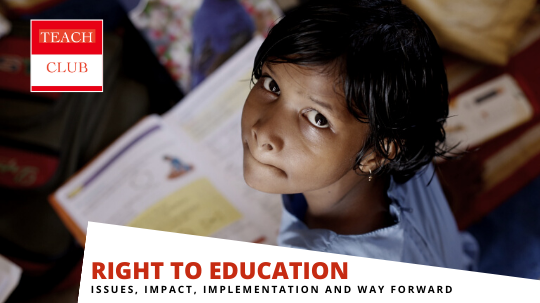Right to Education – Issues, Impact, Implementation and way forward.
With so few examples to follow, social reforms in disarray and with an absolute ‘No’ accountability attitude by governments everyone loves to be a hero. This truism stretches from individuals in the government to the officiating bureaucrats. Announce something which has no semblance to the real world implementation and paint everybody ‘evil’ willing to protest.
The Right of Children to Free and Compulsory Education Act or Right to Education Act (RTE), which was passed by the Indian parliament on 4 August 2009, describes the modalities of the importance of free and compulsory education for children between 6 and 14 in India under Article 21A of the Indian Constitution. India became one of 135 countries to make education a fundamental right of every child when the act came into force on 1 April 2010 (wikipedia).
Here is the government’s gazette. http://www.delta.org.in/form/rte.pdf
and some salient points from the act http://india.gov.in/spotlight/spotlight_archive.php?id=74. All of this is wonderful and should have happened much earlier, but what about implementations and are we doing what is to be done;
Let me discuss some issues first and most of the issues raised here have been mentioned keeping in mind the grouse of the last mile operator in the chain i.e. A School.
1) Who will pay the school fee, How will the school get reimbursed – The act mentions nowhere the mechanism to address this issue. Schools are left at State Govt. mercy to get their due share.
2) Induction in what class – A lot of ire is faced by the handful of English medium schools in our country. The act mentions – “Every child of the age six to fourteen shall have the right to free and compulsory education in a neighbourhood school till the completion of elementary education” . The problem is can a child be inducted from a Hindi medium curriculum to English medium. Books have evolved so much that now parents are thinking pre school as an essential course routine for their child.
3) Act mentions, “No child shall be liable to pay any kind of fees or charges or expenses”. In a school beyond the normal fee a ward is asked to bring lot many things, like wax crayons, material for craft, drawing , hobbies etc. What will the kid do in case if he doesn’t have it. Who will address this?
4) Capitation Fee – Really need much more discussion on this, explaining the same.
- Open / Starta School in India and CBSE Affiliation - May 31, 2022
- Private School getting Affiliated as a Sainik School - January 28, 2022
- Teacher Awards - September 20, 2021
